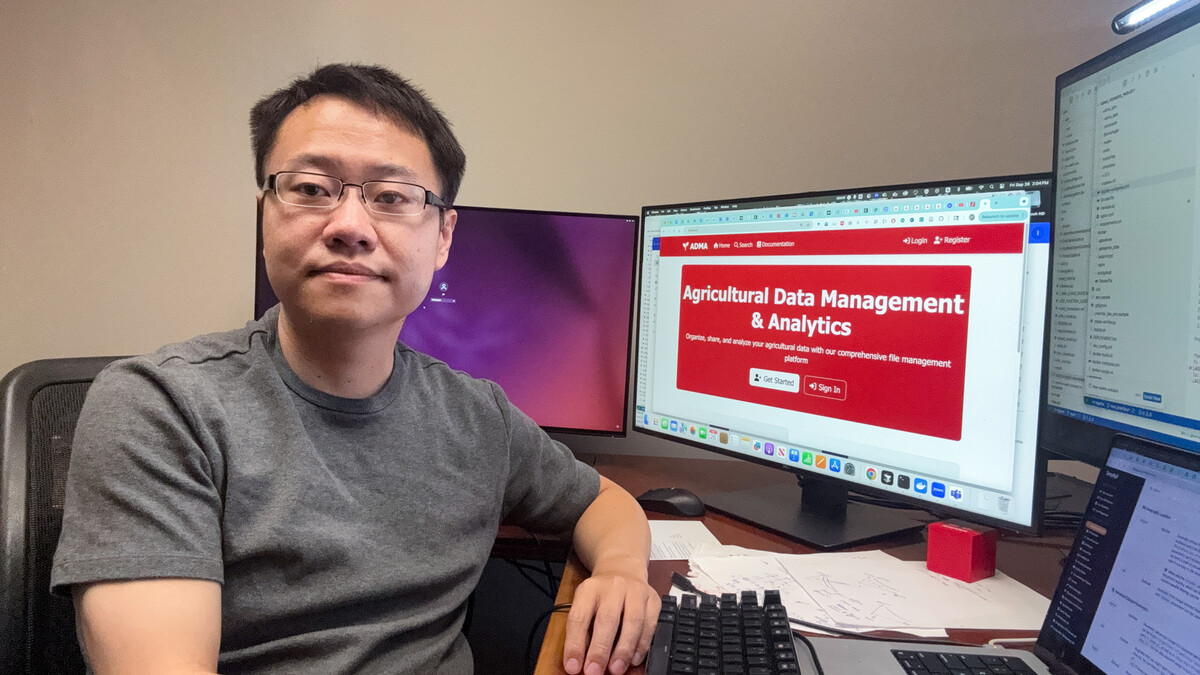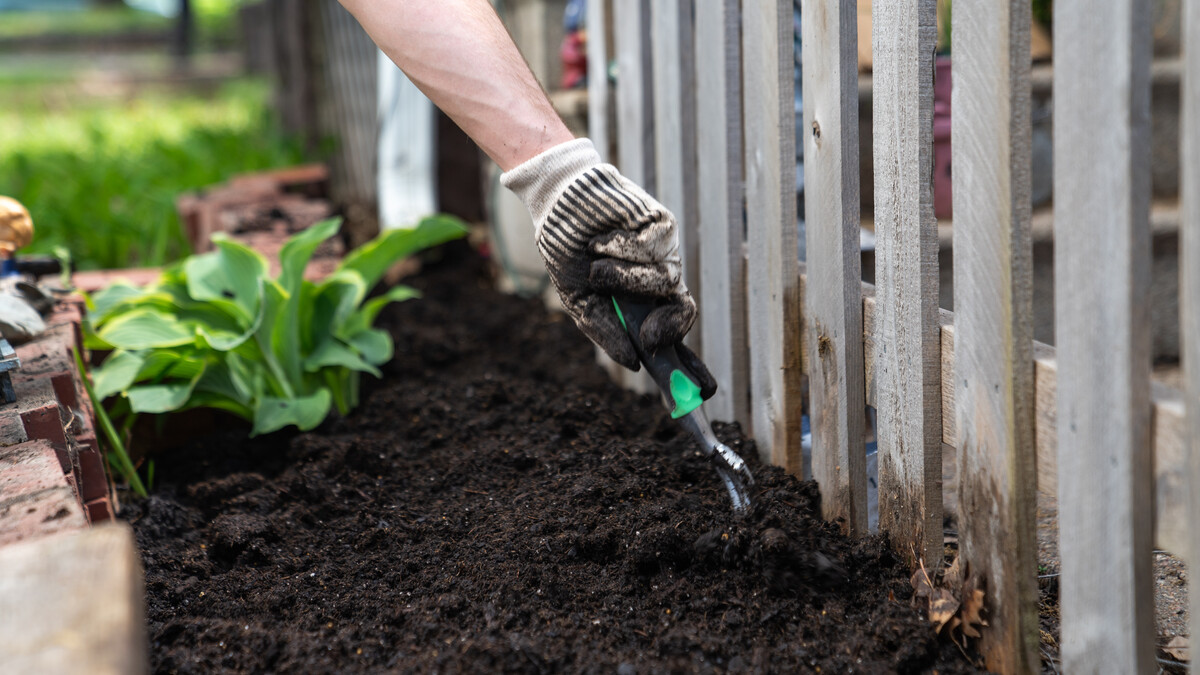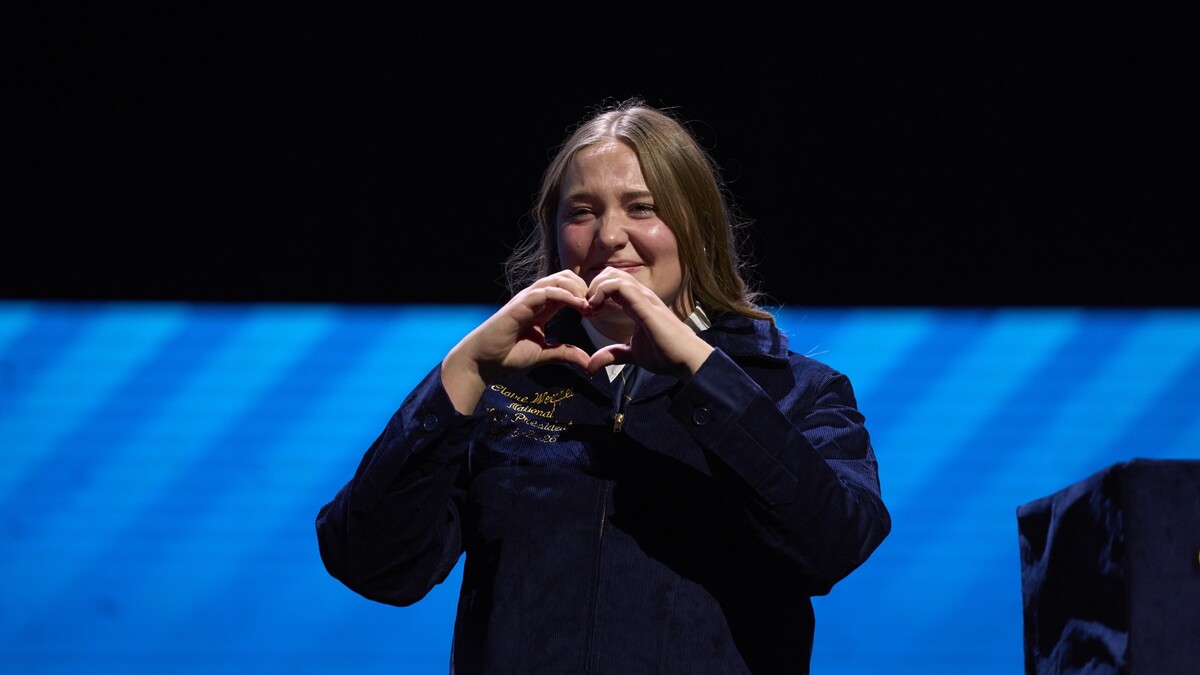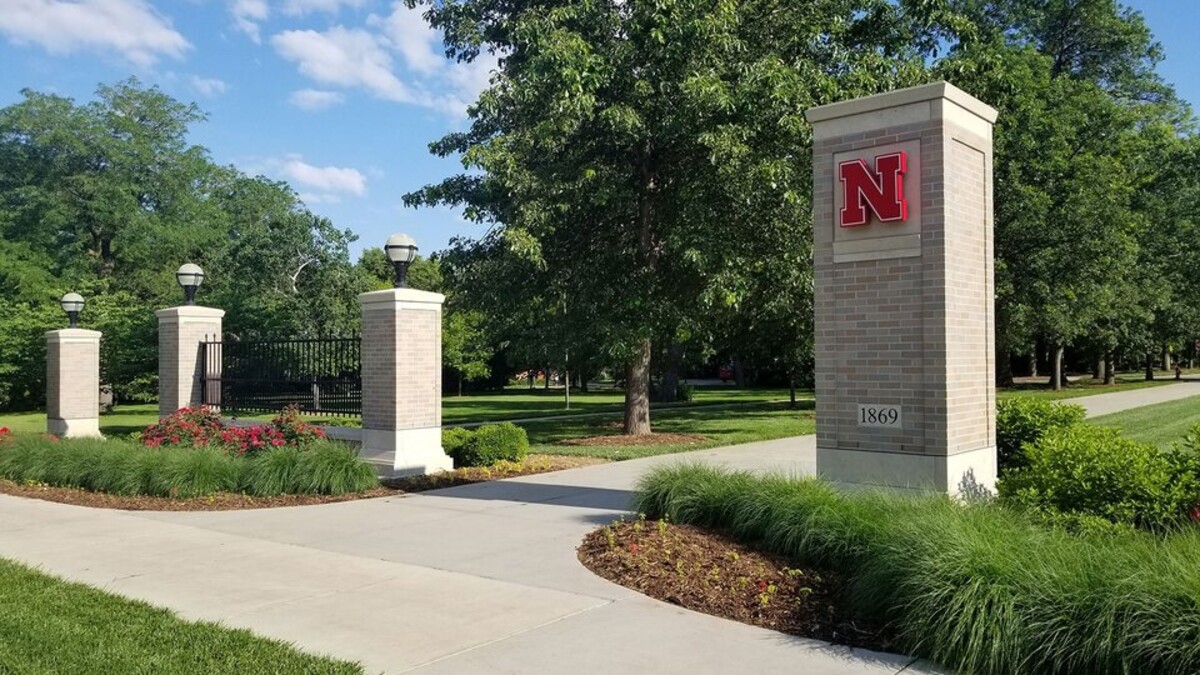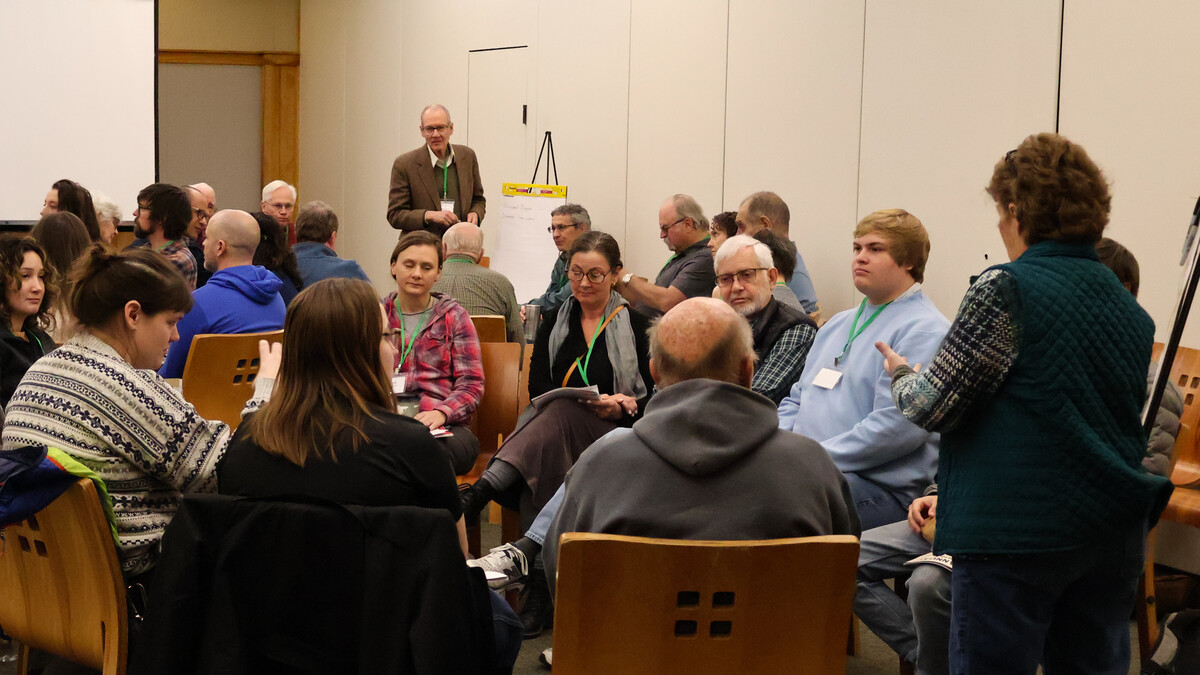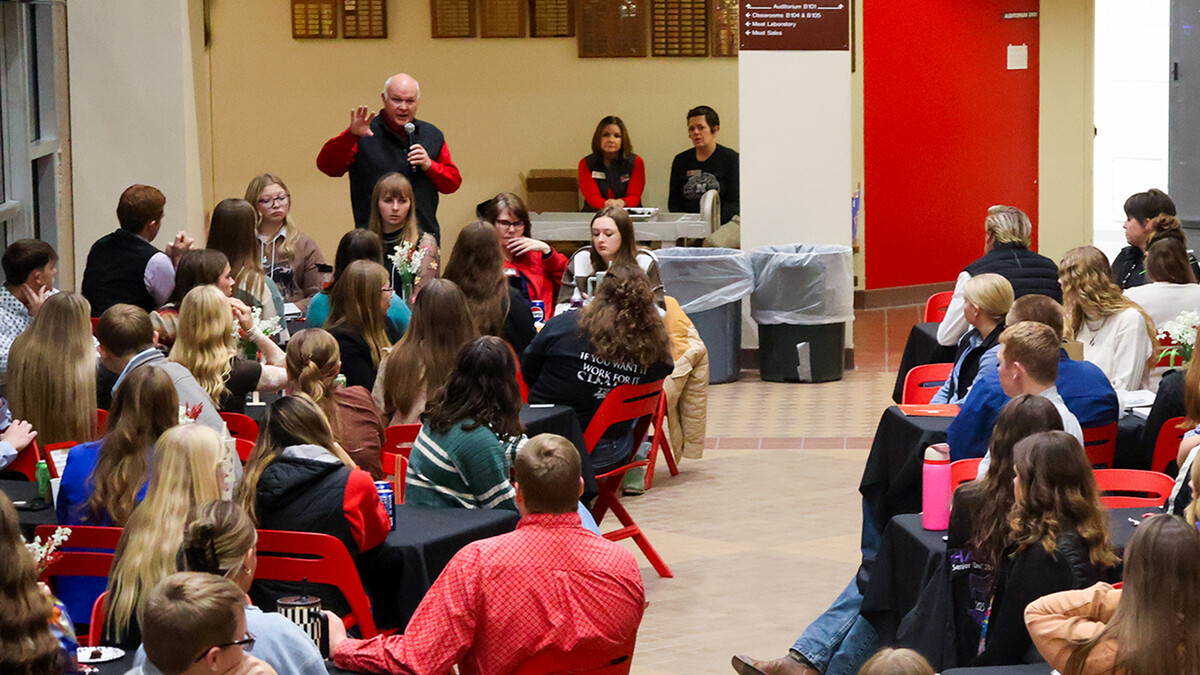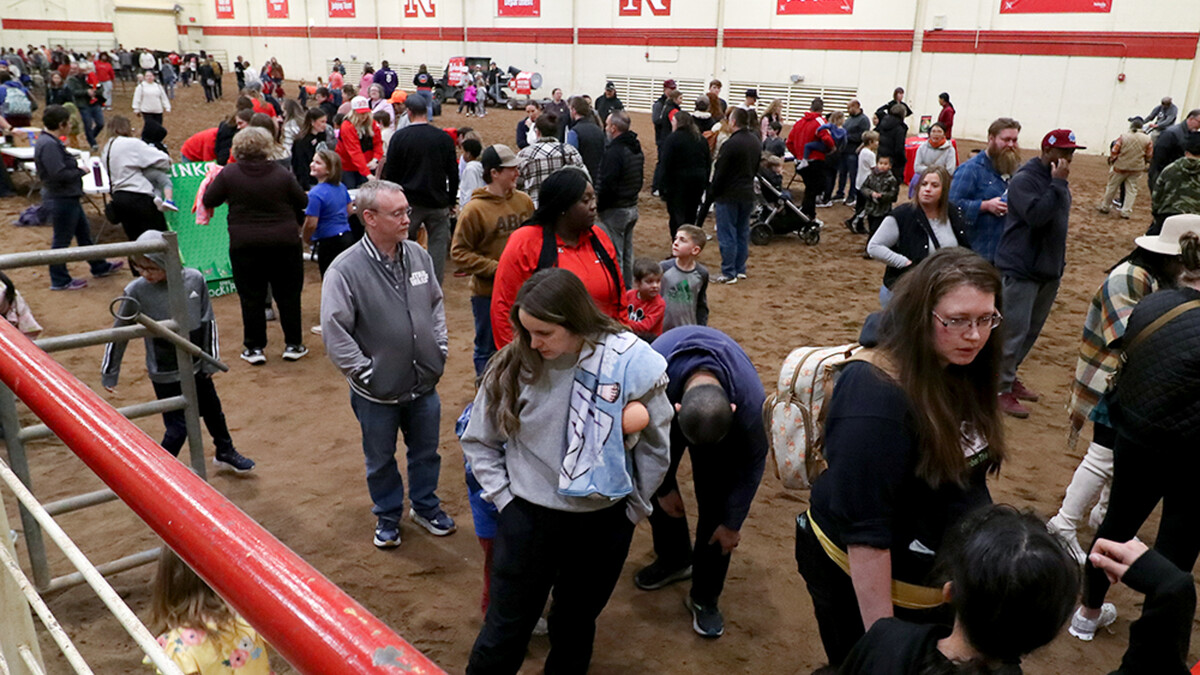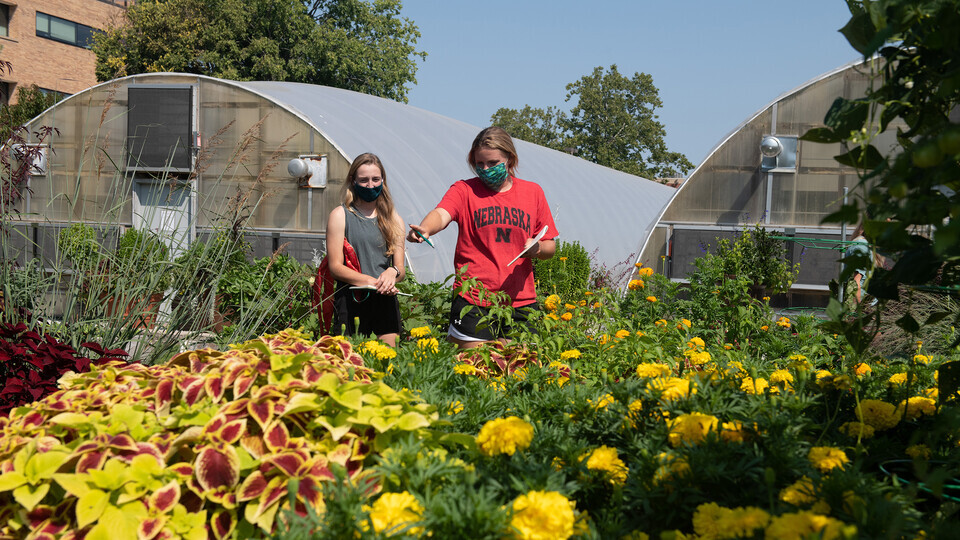
Lincoln, Neb. —First-year agronomy major Emily Hanson is taking one of the beginning courses in her degree, Plant Science 131, remotely this semester.
Most of her days consist of watching Zoom lectures and submitting assignments from her dorm room — but to earn additional points, Hanson also gets out and walks through East Campus each week to find a plant that illustrates a concept she’s learned in class.
The activity is part of a new focus on experiential learning being implemented by instructors in the Department of Agronomy and Horticulture this semester.
“A really important part of our teaching story right now is that we’re coming up with new ways for students to stay connected,” said Don Lee, professor of agronomy and horticulture, who is teaching Hanson’s Plant Science 131 class this fall. “We’ve always done outdoor learning, but given the COVID-19 situation, we just decided we were going to promote outdoor learning more.”
Lee, along with other agronomy and horticulture faculty, is taking away points from quizzes and tests and redistributing them to the weekly exploration assignments.
The experiential assignments not only allow students to get more hands-on experience, but also ensure that students can participate from wherever they may be located this fall.
“We are asking the students to go out and explore and take a picture of themselves with plants that they find interesting. Luckily, we’ve got lots of neat places around the East Campus where they can do that,” Lee said. “There are some students capturing things from their own neighborhood or even their hometown.”
A collection of posts by Lee's students on Yellowdig.After finding a plant and taking a picture, students in Lee’s class then post about it for their classmates to see on Yellowdig, an online social forum for classrooms that became available to Nebraska instructors this year.
Lee said the exploratory method is more effective than sitting in front of a computer, and it also helps combat “Zoom fatigue” for students who are taking more than one remote course.
“Students can say ‘Hey, here I am. I’ve gone to this part of the East Campus, and here’s a plant that is demonstrating something we learned this week,’” Lee said. “While that sounds kind of cheesy, it actually does a lot for your brain to help the learning that you are experiencing become more permanent. You can associate something new you’ve learned with a particular place, and it becomes more meaningful, and you remember it better.”
So far, Lee said students have liked the new activity. Putting it together has also pushed him to grow as an instructor.
“One thing our students all have in common is that they would rather work outdoors than indoors in a cubicle,” Lee said. “For me, I’m learning that there are other ways that I can accomplish the teaching goals in my class, and we don’t have to restrict ourselves to classrooms.”
Hanson, a native of Mead, Nebraska, said she’s enjoyed the opportunity to get away from her laptop and check out what other students are up to during the week.
“I really like the exploratory learning assignments so far,” Hanson said. “They have given me a reason to walk around campus instead of just staying in my dorm room. Seeing what other students have found and their ideas is also really interesting.”
For Lee, teamwork has been an essential part of adjusting to teaching during the COVID-19 pandemic. He was inspired to create more outdoor activities for students after watching Kim Todd, associate professor of agronomy and horticulture, lead students across the East Campus gardens each semester. Ann Powers, research technician in the department, and Cheryl Dunn, agronomy and horticulture research manager, also created a Google Map of plant collections on East Campus that Lee’s students are using for their weekly assignments.
“If you keep teaming up,” Lee said, “your teaching just gets better.”
